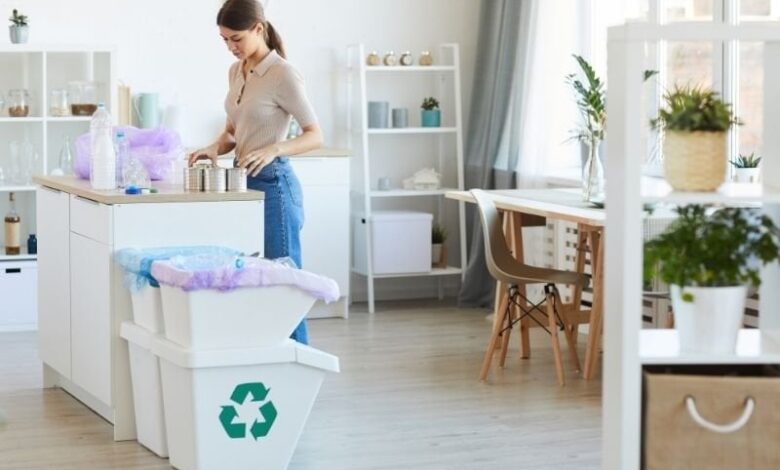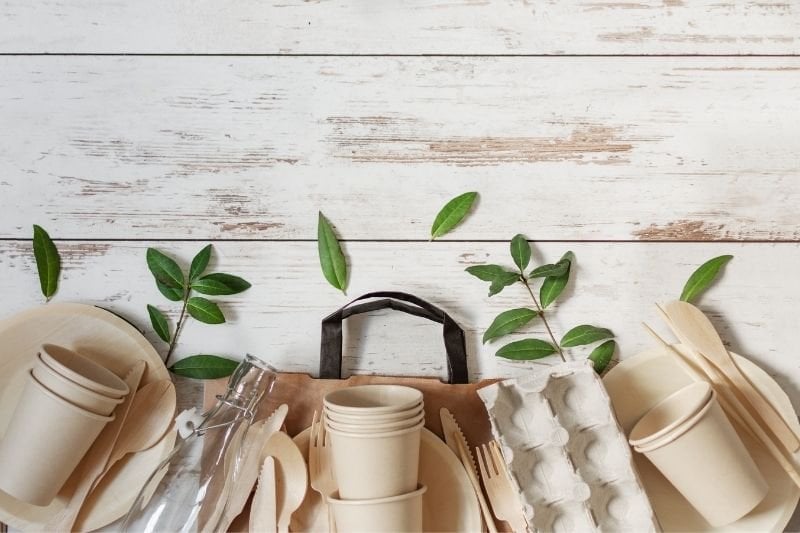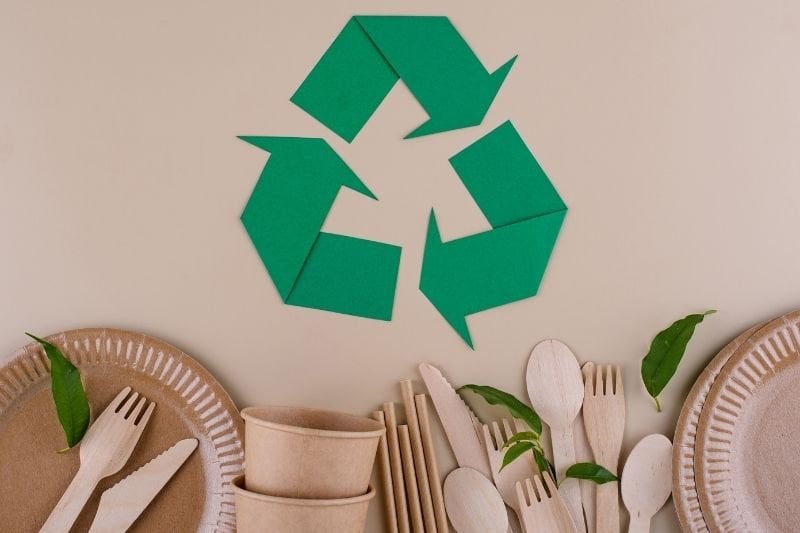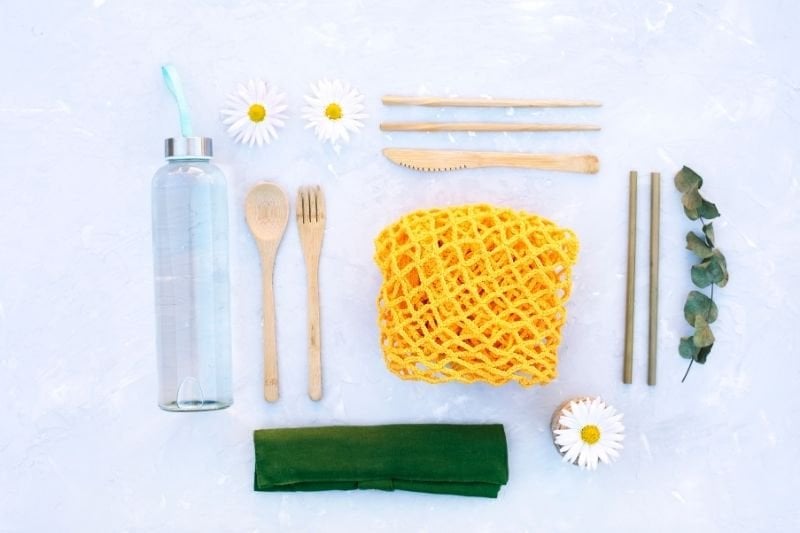More environmentally friendly and healthy solutions instead of plastics used at home

More environmentally friendly and healthy solutions instead of plastics used at home
Nowadays there is a growing awareness that plastics that we often use in our homes are damaging the environment and our health. consciousness in question. Production, use and disposal of plastics Environmental issues brings it with it. At the same time the chemicals are in harmful effects on human health is also known.
At this point, it becomes important to reduce plastic consumption and find greener and healthier alternatives.
in our homes Reduce plastic consumption and developing more environmentally friendly solutions; It not only contributes to the environment, but also to our own health. In this article, which we as the Bellona editorial team have prepared for you, we draw attention to the environmental impact and health risks of plastics in the household. Over and beyond environmentally friendly and healthy alternatives We will focus on that. More this way to a sustainable lifestyle We will help you with the change.
What are the healthy solutions that can be used instead of plastic used at home?
What you can use instead of plastic? It is important to find healthy and environmentally friendly alternatives to the plastics used in the home. At work Plastic reduction Alternatives that can be used for:
Glass or stainless steel containers
Instead of plastic containers, you can also use glass or stainless steel containers for food and drinks. This healthy, long-lasting ve reusable It is beneficial to have.
Natural products
Like cotton and linen instead of plastic made from natural fibers You can select products. Such materials work well for shopping bags, cleaning cloths and clothing labels.
Cloths coated with wax
Instead of plastic stretch film, you can also use wax-coated cloths. These glands, to store food It is a practical and reusable alternative.
Bamboo and wood products
Instead of plastic kitchen utensils, you can choose bamboo or wooden products. Such materials environmentally friendly and natural is an option.
Paper and cardboard products
Instead of single-use plastic plates, cups and cutlery, you can choose recyclable products made from paper or cardboard. Also paper and cardboard Excessive use should be avoided and you should make sure to support recycling.
Metal and glass drinking straws
Plastic alternatives Metal or glass straws also play an important role. These products can help reduce single-use plastic waste.
Natural cleaning products
Instead of cleaning products packaged in plastic, you can use environmentally friendly and natural cleaning products. Such products are usually in recyclable packaging is available.
Metal storage container
Instead of plastic storage containers, you can also use stainless steel or high-quality metal containers to store food at home. Hygienic, durable and reusable These products are good alternatives to plastic.
Metal balloons and bottles
Instead of plastic water balloons, you can also choose demijohns made of stainless steel or glass. Instead of single-use plastic water bottles refillable At this point it is also important to use glass or stainless steel bottles.
Silicone products
Silicone materials can also be used instead of plastics. Silicone baking mats, muffin pans, and spatulas may be more durable and long-lasting than plastic ones.
Bio-based plastics
Bioplastics replace conventional plastics an environmentally friendly alternative it could be. These materials are generally made from renewable resources and are easier to break down. In addition, less energy is used during production.
Handmade products
Instead of plastic, you can opt for handmade or locally produced products. Such products are made from less processed and more environmentally friendly materials.
Reusable hygiene products
Instead of disposable plastic hygiene products, you can use reusable alternatives. Instead of cotton pads, you can also use cotton pads or menstrual cups. The sustainable materials They are a gentle option for both the environment and your wallet.
Reduction of disposable products
Single-use plastics It is one of the products whose use should be reduced. You can also take your own mug or thermos with you when you drink coffee outside. For grocery shopping, you can use cloth shopping bags instead of disposable bags.
Recycle
In addition to reducing plastic consumption, recycle household plastics whenever possible. Recycling is one way to prevent plastic waste from harming the environment. important and effective It’s a way.
These alternatives; Plastic pollution Taking precautions and adopting a healthier, more environmentally friendly lifestyle can be a good start.

Why is it important to reduce plastic consumption at home?
Why it is important to reduce plastic consumption? Here are the most basic answers to this question:
Environmental protection
The production, use and disposal of plastics causes significant environmental damage. Plastic waste damages ocean and terrestrial ecosystems, pollutes water resources, affects living beings and disrupts the balance of ecosystems. Reduction of plastics, to protect natural life contributes.
Protecting marine life
Plastic waste has become a serious problem in the oceans. Plastic in the sea affects the feeding grounds of fish and other marine animals and poses a threat to seabirds and marine mammals. Reducing plastic consumption, Protecting marine life It is an important step for
Health effects
Some plastics contain chemicals harmful to human health it could be. Chemicals contained in plastic products, especially in hot or acidic conditions Risk of transmission to food There are. Reducing plastic consumption, for a healthy life It is important.
Economic impact
Collection, processing and disposal of plastic waste economic costs gives birth. These costs impact the resources of local governments and society. Reducing plastic consumption, Waste management can reduce costs.
sustainability
Fossil fuels such as oil and natural gas, which are the raw materials for plastics, are limited resources and have an impact on the environment. Reducing plastic consumption, a sustainable future It promotes more efficient use of natural resources.
For these reasons, reducing plastic use at home is important for both the environment and human health. a sustainable lifestyle supports.

How can I adopt a plastic-free lifestyle?
Plastic-free and Zero waste lifestyle It is entirely feasible and extremely beneficial for the environment. Here you will find important and valuable tips that can help you switch to a plastic-free lifestyle:
- When shopping, avoid products that contain single-use plastic if possible.
- Instead, reusable alternatives choose.
- Go shopping with fabric shopping bags and use reusable water bottles.
- When shopping, choose unpackaged or less packaged products instead of packaged products.
- ecological packaging The products used are also a good choice.
- Buying fresh produce at local markets or health food stores can help you with your shopping.
- Ready meals are often sold in plastic packaging.
- Instead, cook at home ve By making your own snacks You can reduce the use of plastic.
- Discover ways to live without plastic.
- You can replace your toothbrush with a bamboo alternative or use a metal or bamboo straw instead of a plastic straw.
- Dispose of used plastics properly through recycling or through reuse You can reduce plastic waste.
- Find out about plastic recycling facilities or collection points and take your waste there.
- Live without plastic to environmentally friendly alternatives invest.
- Instead of plastic dental floss, you can use cotton floss or choose glass or stainless steel storage containers instead of plastic.
Switching to a plastic-free lifestyle Habit, effort and dedication may require; But it will bring great benefits to our planet and future generations. Every step counts, so through small changes You can start and make additional changes over time.

You might be interested in:
What is Zero Waste: Introduction to the Zero Waste Lifestyle
What is Hydroponic Gardening: Growing Plants Without Soil
Composting at home: converting waste and contributing to nature
How much does using sustainable furniture contribute to the world?
Natural air purifying plants for the home




